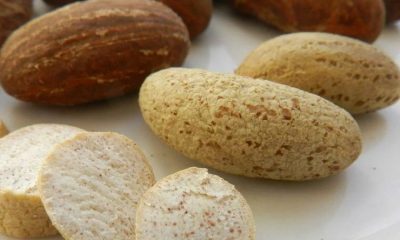More News
Mango: History, Health Benefits And Other Things You Need To Know

Mango fruit belongs to the cashew family, Anacardiaceae. It is no news that the fruit is one of the most cultivated trees in Nigeria.
According to historians, Mangoes were first discovered in India more than 4000 years ago. During those times, it was considered a sacred fruit. In Nigeria, it is only sacred in the mouth and a perfect sacrifice with a knife to slice it onto the plate for optimal consumption.
Some reports have argued Mango is the most consumed fruit in the world. Well, Nigerians may argue considering the fact that it goes out of season.
Health Benefits of Mango
Antioxidants
Mango fruit contains lots of polyphenols. Polyphenol is a compound constituent of plants that could act as antioxidants in the human body.
Some of the popular types of polyphenol include mangiferin, kaempferol, rhametic, benzoic acid, etc.
Generally, antioxidants protect the body against free radicals. Wondering the dangers of free radicals? They have the potential of binding to the cell and in result, damage it. Scientists have noted free radical damage to be linked to ageing.
Can Boost Immune System
Mango is a good source of vitamins notably Vitamin A. This vitamin has been researched could boost the body’s immune system.
Eating mango can provide the body with about 10 per cent of the daily Vitamin A intake requirement. Lack of vitamin A in the body can expose you to infections/diseases.
Good for the Eyes
Two antioxidants found in Mango – lutein and zeaxanthin – accumulate in the retina of the eye. This part of the eye is responsible for converting sighted objects into brain signals the brain can decode to communicate back to you so that you can identify such objects.
These antioxidants can act as a sunblock to protect the eyes from excess light.
Send Us A Press Statement Advertise With Us Contact Us
And For More Nigerian News Visit GWG.NG






